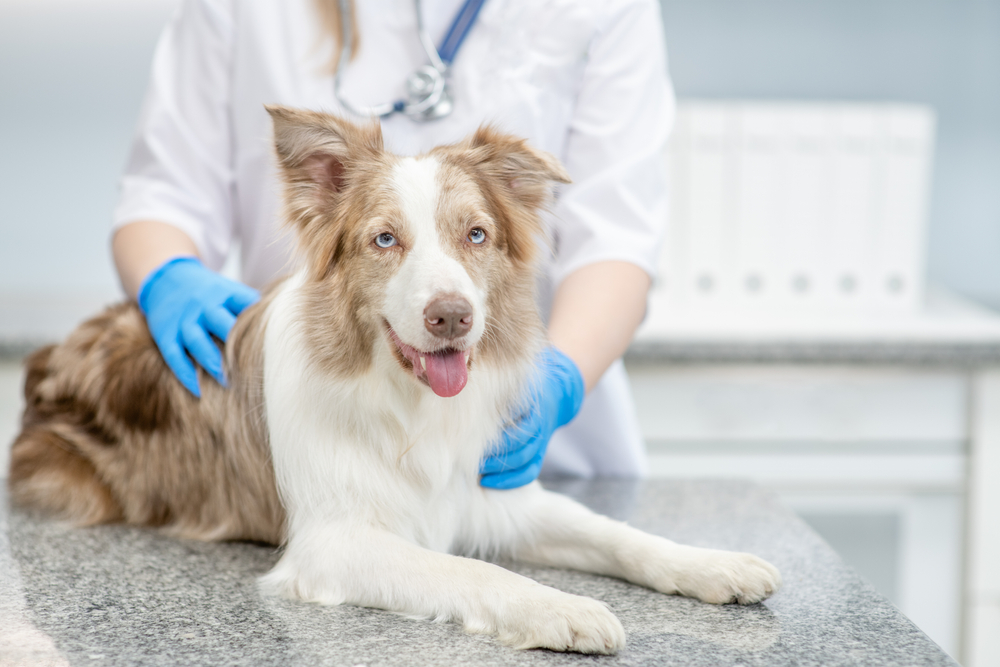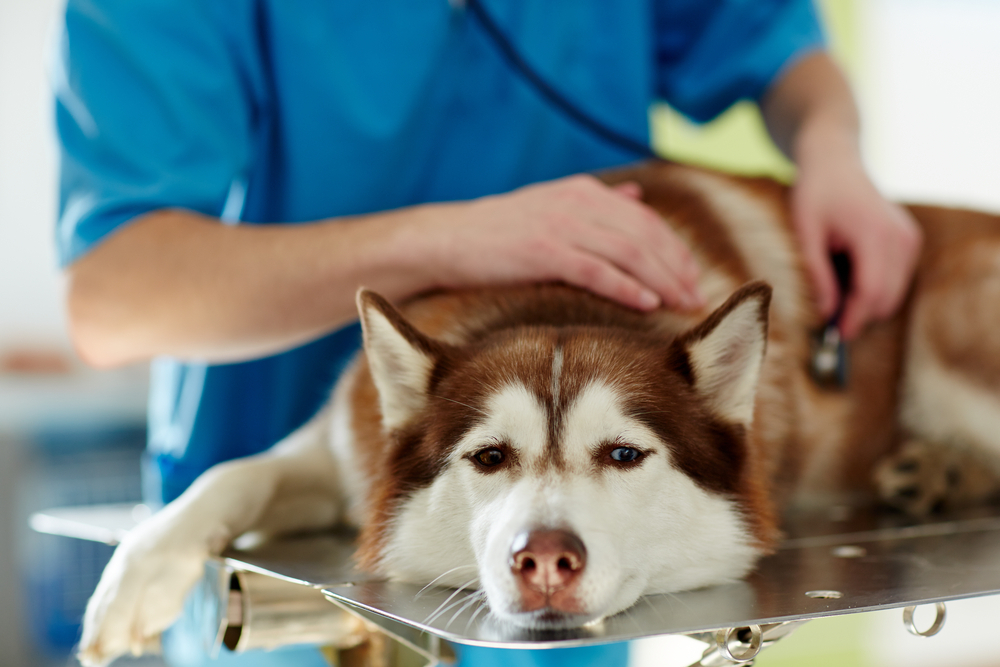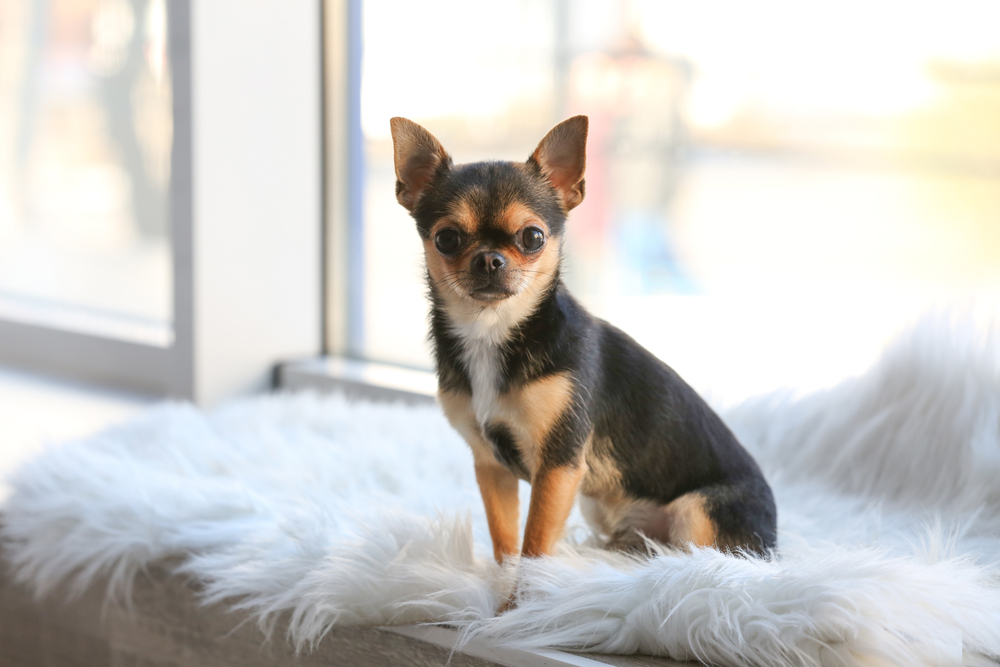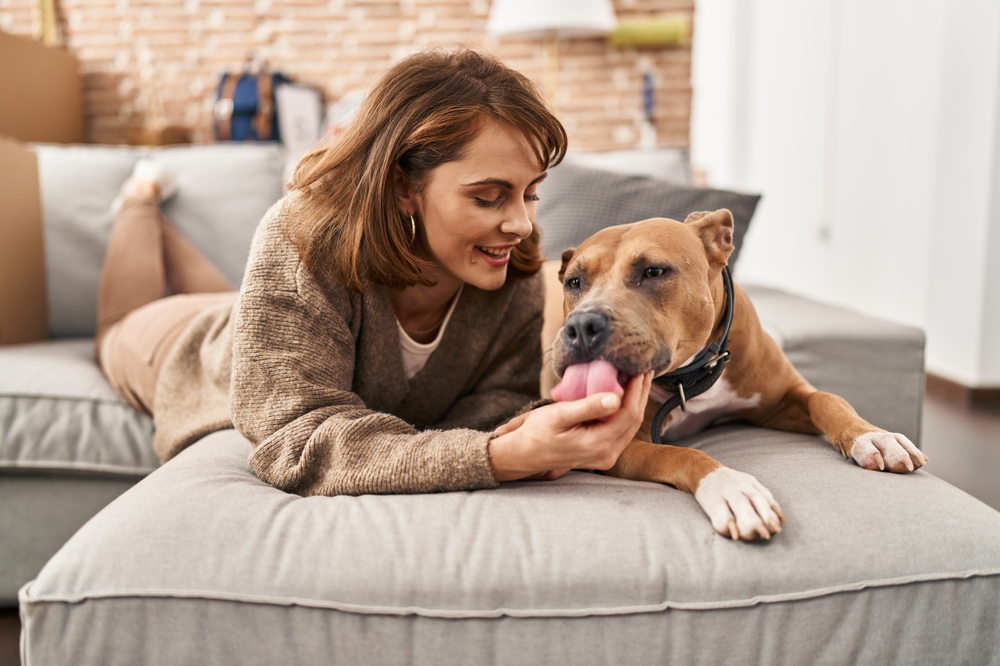Click to Skip Ahead
Rottweilers are highly intelligent, confident, and courageous dogs whose size and appearance often make them intimidating. However, any owner will tell you just how sweet, affectionate, and playful they are. If you’re considering welcoming a Rottweiler into your home, you’re probably curious about what to expect in terms of lifespan.
Since Rotties are large dogs, they live shorter lives than other, smaller breeds. The average lifespan is between 9 and 10 years. Read on to learn more about how to care for a Rottweiler to extend their lifespan.
Rottweilers Average Lifespan
The average lifespan of a Rottweiler is between 9 and 10 years, though some can live to 12 years or more. This may be due in part to their high risk of developing health conditions. Routine veterinary exams can help keep Rotties healthy and allow your vet to create a baseline to help catch problems sooner. However, health and genetic testing before Rottweilers breed is also essential. Making sure breeding dogs are not carriers of certain hereditary conditions is critical in avoiding the production of puppies prone to these health issues.

How to Care for Your Rottweiler for a Long Lifespan?
While a Rottweiler’s lifespan is much shorter than their smaller breed counterparts, there are some things that owners can do to help their pets live as long as possible. The first step is to provide them with the best care right from the get-go. Of course, some factors are out of our control, but let’s take a closer look at the things we can control when considering how to extend the lifespan of our pets.
Feeding & Diet
The food a Rottweiler is fed can absolutely impact their lifespan. A Rottie fed a poor diet void of the nutrients necessary to promote health may be at risk of developing nutritional deficiencies. Those overfed can be prone to obesity.
Owners should offer their Rotties food that’s complete and balanced for their life stage. Puppies have different nutritional needs than their adult and senior counterparts. Puppies should be fed a puppy-specific diet three or four times daily due to their smaller stomachs and faster metabolisms. Feedings can be cut back to twice daily once they’ve reached adulthood. Feeding multiple smaller meals may help prevent bloat and gastric dilatation-volvulus which is most commonly seen in large deep chested breeds like Rotties.
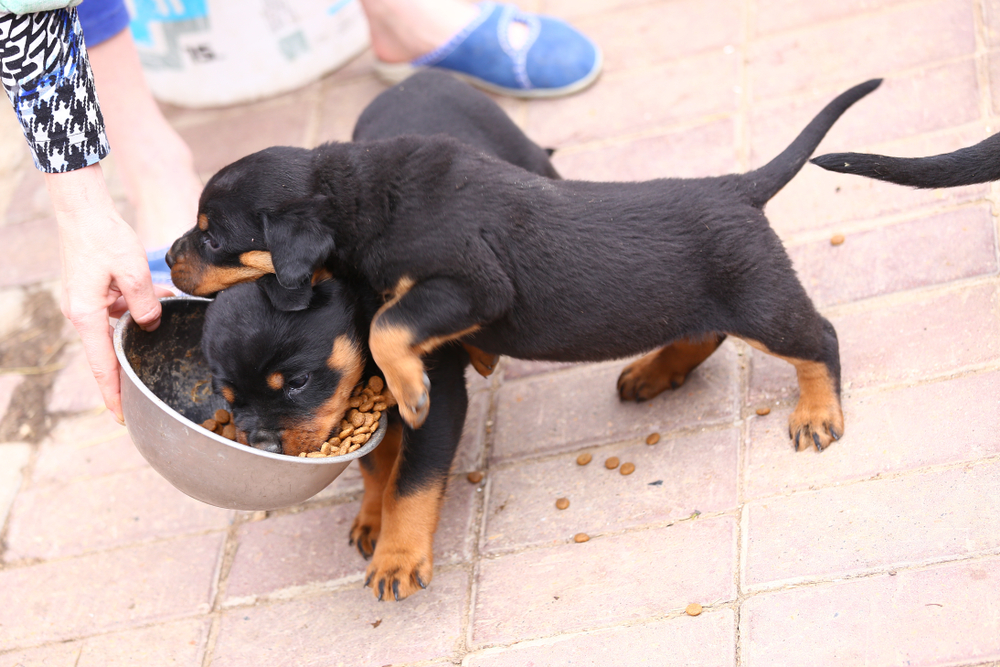
Environment
Genuinely happy dogs are healthier because they’re not under stress or anxious. To increase a Rottweiler’s happiness, owners must cater their environment to be more dog-friendly.
Rottweilers are pretty adaptable dogs that can live happily on farms, in urban neighborhoods, or even in apartments. Though most people often don’t consider large breeds suitable for apartment living, with proper training, care, and attention, Rotties can do well in such dwellings. Owners must ensure that their dogs have plenty of opportunities to burn off energy outside.
Since Rotties bond so closely with their humans, they love nothing more than being part of the family. They’ll want to tag along on all their owner’s outdoor adventures, including runs, hikes, and swims.
Care
Caring for your Rottweiler includes ensuring their physical and mental needs are met daily. Rotties are brilliant dogs with high energy levels and physical strength to match. They’ll need anywhere from one to two hours of exercise daily. This can include activities like walking, playing ball, agility training, puzzle feeders, and visits to the dog park.
Rottweilers are very loyal and affectionate dogs and, as such, bond very closely with their humans. They can develop separation anxiety if left alone for too long too often, which can lead to distress behaviors like excessive barking, house soiling, and destruction. Potential owners must consider their lifestyle and work schedule before adopting to ensure they have enough time to spend with their pups.
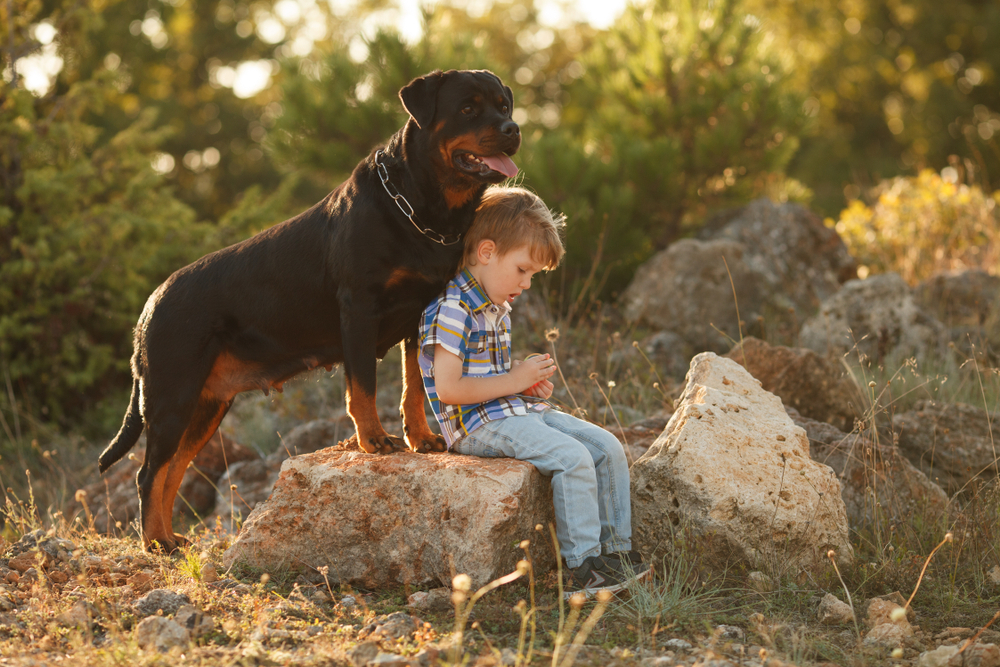
Pairing/Breeding
As mentioned above, if you plan to breed your Rottweiler, it is essential to have the recommended health testing done beforehand. This significantly reduces the risk of your dog passing on potentially life-limiting hereditary health conditions to their offspring.
Healthcare
Owners must do their due diligence when choosing a puppy to adopt to increase the chances of their Rottweiler living as long as possible. Genetics plays a significant role in a dog’s health and longevity, so it’s essential to only support responsible breeders who perform health and genetic screenings before producing puppies.
- Elbow or hip dysplasia
- Cranial cruciate ligament rupture
- Osteosarcoma
- Gastric dilatation-volvulus
- Subaortic stenosis
The Life Stages of a Rottweiler

Puppy (0–1 year)
The puppy development process for Rottweilers consists of five stages.
Neonatal (0–2 weeks)
Puppies are born with only their sense of taste and touch. They rely entirely on their mothers.
Transitional (2–4 weeks)
Sensory development begins, and puppies will start to hear and smell. Their teeth can begin to emerge, and their eyes will start to open. Personality begins developing.
Socialization (3–12 weeks)
This is a crucial period of development for Rottweilers, though owners won’t have much of a say throughout most of it, as puppies typically won’t be adopted until they’re between 7 and 12 weeks old.
Puppies start to learn more about themselves and others and begin trying different play styles. They start to develop social skills and explore their curiosities.
Testing (3–6 months)
In this stage, Rottie puppies begin testing their boundaries and limits. Problematic behaviors can begin, so training is essential.
Adolescence (6–18 months)
Rottweilers begin to transition into their teen years in this phase. Their hormones can cause changes in behavior. Large breeds, like Rotties, mature much slower than their smaller counterparts, so they may not reach full maturity until they’re two or three years old.
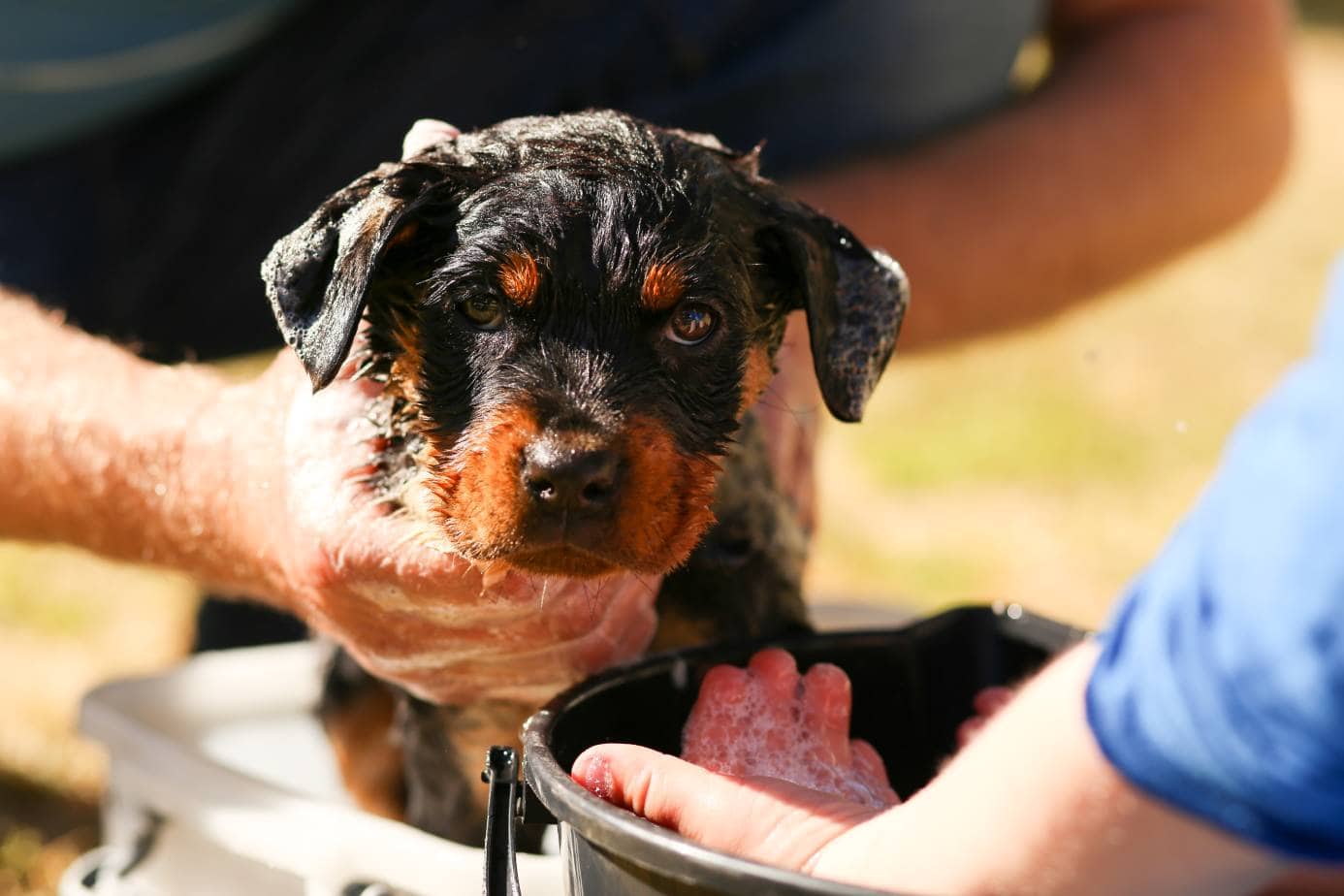
Adulthood (3–8 years)
The adulthood stage for Rotties occurs when they’ve reached physical and mental maturity. During this stage, they are the strongest and healthiest they’ll be.
Provided they’ve had proper socialization and training during the puppyhood stage, adult Rotties should be much easier to handle. They’ll begin exploring hobbies and activities they like, and responsible owners will give them the space to do so.
Senior (8+ years)
As Rotties enter their golden years, they may begin to experience age-related health conditions. It’s as important as ever to ensure they’re getting the proper nutrition, exercise, and veterinary care to keep them healthy.
It can be normal for usually active dogs to begin slowing down a little but it’s important to keep a close eye on any changes in your dog’s behavior and discuss them with your vet.
How to Tell Your Rottweiler’s Age
Unless the breeder provides a date of birth, pinpointing a Rottweiler’s exact age can be challenging. However, owners must know approximately how old their pups are, as this is important for their pet’s healthcare. An adult Rotties’ physical activity and dietary needs will differ from those of a senior or puppy.
Even if you don’t have your pup’s DOB, you can guesstimate their age using these tips:
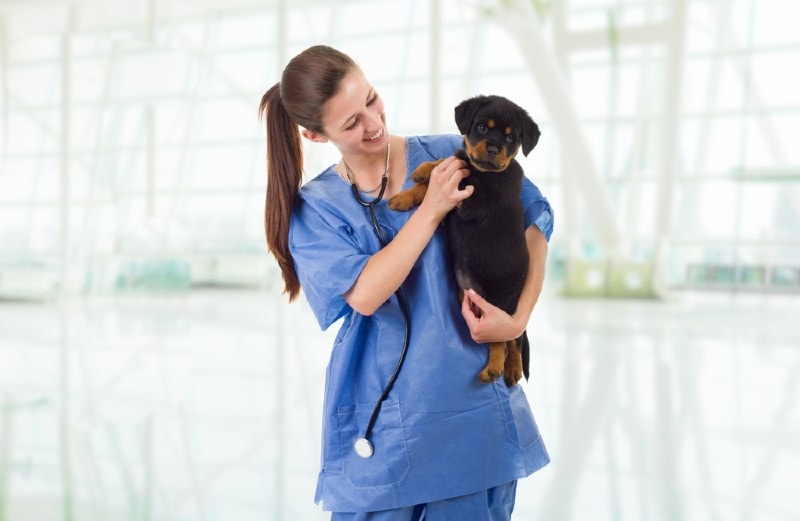
Teeth
Puppies will get all their baby teeth by the time they’re eight weeks. Permanent teeth won’t emerge until around three to four months. As dogs age, their teeth may appear dull, and tartar build-up can occur. By the time they’re around five, teeth may be worn down and even diseased depending on previous dental care.
Coat
Just like humans, senior dogs’ fur can begin to turn gray as they age. Rottweilers can develop gray or white fur on their chest, haunches, or muzzle beginning around seven years of age, though it can happen sooner or later and doesn’t always occur.
Eyes
As Rottweilers age, their eyes can change in appearance and appear cloudy. Nuclear sclerosis is a benign change to the lens which causes a bluish or hazy appearance and is typically found in dogs over 7 years of age. However all ocular changes should be checked by a veterinarian, some Rotties will develop cataracts or other conditions that can cause blindness.
Weight distribution
As Rotties age, the way they hold their weight can change. Fat pads can develop over the lower back, and mild muscle wasting can occur. Run your hands down your pup’s back on either side of their spine to see if you notice any of these indicators of age.

Conclusion
Life expectancy may be a crucial factor when choosing which dog breed to adopt. Rottweilers have shorter lifespans than other breeds simply because of their size and propensity for developing health conditions. With regular veterinary care and proper upbringing, Rotties can live long, healthy, and incredible lives, providing owners with a wonderful nine to ten (or more) years of love and companionship.
Featured Image Credit: everydoghasastory, Shutterstock








